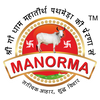UNDERSTANDING THE DIFFERENCE BETWEEN INDIAN DESI COW AND THE JERSEY (HYBRID) COWS?
Indian breed Desi Cows contain the A2 allele gene. This is also transferred to the milk which makes it much more nutrient and healthy than the A1 milk variant that is produced by the exotic hybrid cows. Generally, Jersey Cows give more milk while Desi Cows gives less quantity of milk when compared to Jersey breed, but the quality of Desi Cow milk (A2) has been proved to be best and has certain medical qualities and Doctors advise pregnant women, kids, diabetics and heart-patients to consume it.Wondering how this would make much of a difference? Well, did you know that if you are not drinking the A2 Milk or A2 Ghee, the chances of developing allergies, diabetes, obesity, and cardio-vascular diseases are higher in the future?
The Indian holy cow's dung cakes are considered sacred and have a prominent place in worships, Pujas and ceremonies.
Yagnas and hawans are spiritual ceremonies where offerings to God are burnt in fire. In this form of worship, Cow plays a central role and several scientific findings have proved that burning dry Cow dung cakes in fire tends to purify the air; it is anti-pollutant and has anti-radiation qualities that benefit the environment. That is the reason our ancestors had the Desi cow and its products placed at the helm of every celebration and observation.However, the Hybrid breeds of cow do not have all these beneficial properties, due to the genetic modification over the generations.
Cows dung is an important and ancient source of bio-fertiliser, which works as an effective alternative to the chemical fertilisers, as it enhances productivity in the long run by increasing soil health and the fertility of the soil.Also, the Urine (GauMutra) and Dung of Desi Cow is valuable as it can be used as insecticide and manure respectively. Jersey Cow dung isn’t that efficient in this regard.
